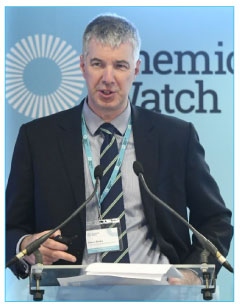
Our guest blogger, Dr. Steve Binks from our European partner ILA, discusses our joint alliance to support responsible battery manufacturing and recycling to minimize lead exposure around the globe.
One of the hallmarks of a modern and responsible global industry is its ability to work collectively to take steps to continuously improve safety and environmental performance and establish targets that enhance the sustainability of the products they market.

Through four Associations, the battery industry and its value chain has formed an alliance to support responsible battery manufacturing and recycling with the goal of minimising exposures to lead in all regions of the globe. The material stewardship initiative, involving some of the biggest battery companies in the world, is built around a set of seven guiding principles which are designed to commit companies to business practices that support environmentally sound manufacturing and recycling of lead batteries.
One of the issues affecting some low and middle-income countries is the predominance of substandard or informal manufacturing and recycling of lead and lead batteries that can result in adverse human health impacts and significant environmental pollution. Lead has a market value, and where there are few or no restrictions or regulations, informal recycling of batteries offers access to much needed cash to some communities. Member companies of ILA, EUROBAT, BCI and ABR can play a significant role in reducing this problem through delivering on commitments made in the new guiding principles.
We envisaged that the material stewardship programme will allow us to enhance the effectiveness of ILA sponsored programmes in low and middle-income countries, that have been active for more than 20 years, designed to share our expertise to improve lead battery recycling practices through partnerships with NGO’s, Governments and other stakeholders. In addition, the commitment in the guiding principles to responsible sourcing will mean that no member company will be encouraging informal or sub-standard battery recycling by purchasing lead without first establishing that it has been produced using environmentally sound practices and in facilities that have a high standard of employee welfare.
Our successful employee blood lead reduction programmes that sets industry wide targets and commits member companies to continuous improvement in the management of workplace lead exposures is a tangible demonstration of the fact that collective action can drive significant and long-lasting benefits. The new guiding principles we have developed will be supported by a set of sectoral key performance indicators that will allow us to track and report progress against our commitments to ensure that we and our members “walk the talk”.
The communication of the guiding principles, supported by the membership of major Associations representing the lead battery value chain, is the start of a journey that will raise global standards and help ensure that lead batteries continue to be a key enabling technology for the transition to a low carbon future. Once established we envisage expanding membership to include Associations and companies representing a wider geographical spread and introducing more formal assurance requirements for companies to prove that they are delivering on commitments.
Learn More
ILA: Assistance to Industry and Governments Around the World
ILA Fact Sheet: Recycling in the Informal Sector





